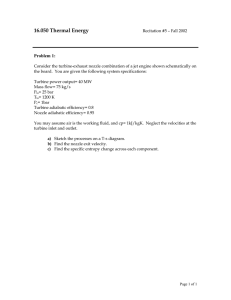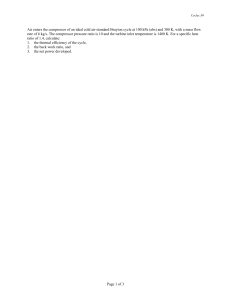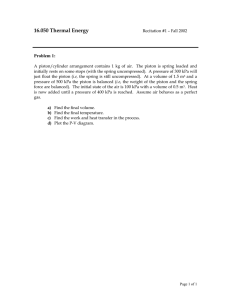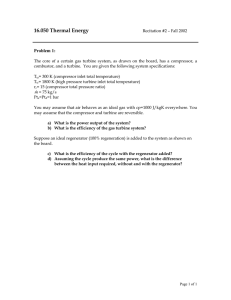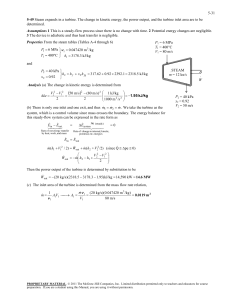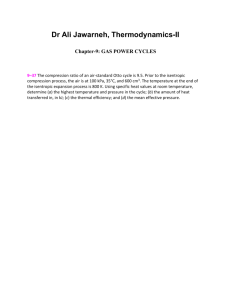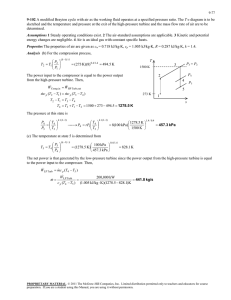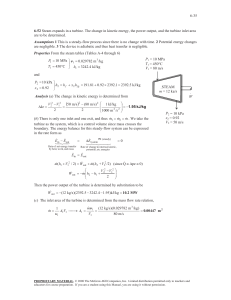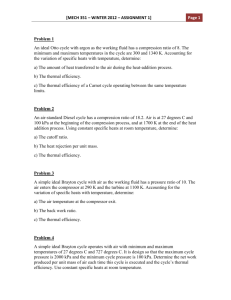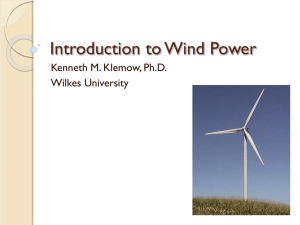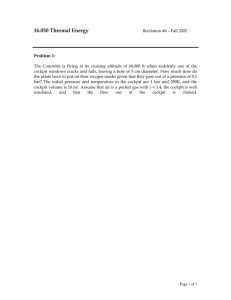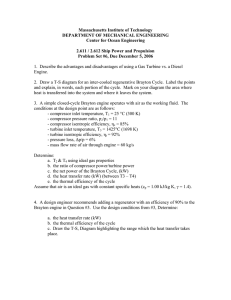16.050 Thermal Energy Time spent on problems: Problem 1:
advertisement
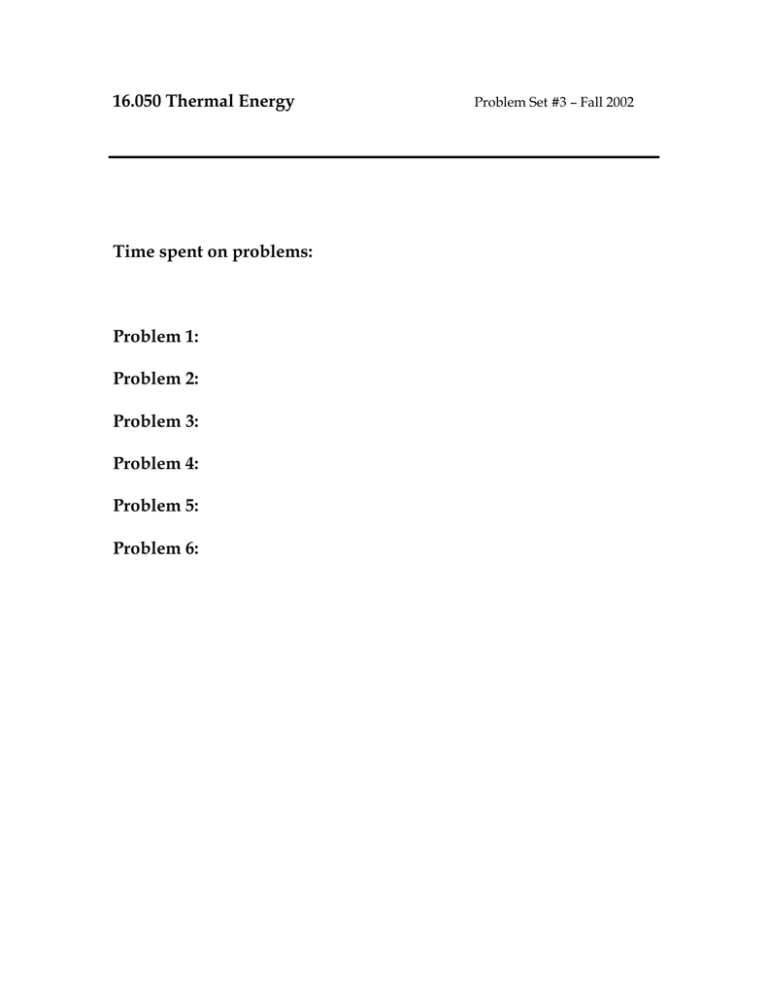
16.050 Thermal Energy Time spent on problems: Problem 1: Problem 2: Problem 3: Problem 4: Problem 5: Problem 6: Problem Set #3 – Fall 2002 16.050 Thermal Energy Problem Set #3 – Fall 2002 Do all problems. Please use a separate sheet of paper for each problem. 1. A Brayton cycle operates in air with a pressure ratio of 10. All components are ideal. The temperature at the inlet to the compressor is 400 K and the temperature at the inlet to the turbine is 2000 K. The kinetic energy at the inlet and exit of all components can be neglected. Assume that the working fluid has a constant cp=1000 J/kgK. a) What is the compression work per unit mass? b) What is the turbine work per unit mass? c) What is the net work of the cycle per unit mass? d) What is the heat input per unit mass? e) What is the heat rejected per unit mass? f) Express the overall cycle efficiency as the ratio of two of the above (ae). 2. An ideal gas-turbine unit (Brayton cycle) operating on a closed cycle is to deliver 6000 kW and receive heat from a nuclear reactor. Different gases are to be studied. Let the gas be argon: p1=480 kPa, T1=45oC. The argon enters the turbine at 1100oC and the cycle should be such as to deliver maximum work for these constraints. At what rate should the argon circulate? 3. Howell & Buckius, Fundamentals of Engineering Thermodynamics. Problem 5.225 Page 1 of 2 4. A gas-turbine unit consists of two turbines A and B (see figure), two combustors, and a single compressor C; turbine A drives compressor C to furnish all air required while turbine B delivers 1.5 MW, the net power output, W . At state 1, p1=100 kPa, T1=300 K; rp=5 (compressor pressure ratio). The inlet condition for each turbine is 500 kPa, 1000 K; both turbines exhaust at 100 kPa. Determine (a) the heats input rates Q 1 and Q 2 , and (b) the thermal efficiency for the unit. Assume that the working fluid has a constant cp=1000 J/kgK. Problem 4 5. The Concorde is flying at its cruising altitude of 60,000 ft when suddenly one of the cockpit windows cracks and fails, leaving a hole of 0.2 m diameter. How much time do the pilots have to put on their oxygen masks given that they pass out at a pressure of 0.1 bar? The initial pressure and temperature in the cockpit are 1 bar and 290K, and the cockpit volume is 10 m3. Assume that air is a perfect gas with γ = 1.4, the cockpit is well insulated, and that the flow out of the cockpit is choked. Page 2 of 2
